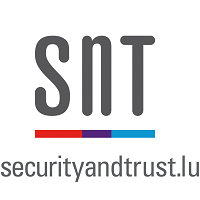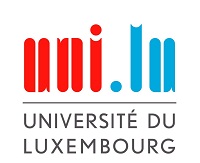Important Dates
- Paper
12 June 2011 (extended) - Notification:
11 July 2011 - Final version due:
20 July 2011
- Workshop:
8 September 2011
Technical
Co-Sponsors


Programme
The workshop's programme is also available in PDF
| Session 1: Invited Talk | |
| 9:10-10:15 | On collaboration and non-collaboration in network security - two case studies |
|
Prof. Luca Viganò (Univ. of Verona)
Abstract: The study of collaboration (and of non-collaboration) is becoming more and more important in the formal analysis of modern systems for network security since the attitude of the system agents may actually play a crucial role in ensuring, or endangering, the security of the system as a whole. In this talk, I will present two case studies that illustrate this further (joint work with Matteo Cristani and Erisa Karafili, and Maria-Camilla Fiazza and Michele Peroli, respectively). First, I will consider the fact that, similar to what happens between humans in the real world, in open multi-agent systems distributed over the Internet, such as online social networks or wiki technologies, agents often form coalitions by agreeing to act as a whole in order to achieve certain common goals. However, agent coalitions are not always a desirable feature of a system, as malicious or corrupt agents may collaborate in order to subvert or attack the system. I will thus consider the problem of hidden coalitions, whose existence and the purposes they aim to achieve are not known to the system, and present a solution to this problem by means of methods that block the actions of potentially dangerous agents, i.e. possibly belonging to such coalitions. Second, I will discuss how although computer security typically revolves around threats, attacks and defenses, the sub-field of security protocol analysis (SPA) has so far focused almost exclusively on the notion of attack. I will motivate that there is room in SPA for a fruitful notion of defense and that the conceptual bridge lies in the notion of multiple non-collaborating attackers. To support SPA for defense-identification, I will propose a paradigm shift that brings security closer to the conceptual tools of fields that have a rich notion of agent, such as robotics and AI, in contrast to the weak notion of agent that is typical of SPA. |
|
| 10:15-11:45 | Coffee break |
| Session 2: Security and Trust Models with Social/Human Aspects | |
| 10:45-11:15 | Security Requirements Engineering via Commitments |
| F. Dalpiaz, E. Paja, and P. Giorgini (University of Trento) | |
| 11:15-11:45 | Information Security as Organizational Power: A framework for re-thinking security policies |
| P. Inglesant, and M. A. Sasse (University College London) | |
| 11:45-12:15 | Controlled Data Sharing in E-health |
| I. Matteucci, P. Mori, M. Petrocchi, and L. Wiegand (IIT-CNR) | |
| 12:15-12:45 | An Approach to Measure Effectiveness of Control for Risk Analysis with Game Theory |
| L. Rajbhandari, and E. Snekkenes (Norwegian Information Security Laboratory) | |
| 12:45-14:00 | Lunch |
| Session 3: Session: Security and Trust for Socio-Technical Systems | |
| 14:00-14:30 | Camera Use in the Public Domain: Towards a "Big Sister" Approach |
| M. van der Sar, I. Mulder, and S.Choenni (Human Centered ICT, School of Communication, Media and Information Technology Rotterdam University of Applied Science) | |
| 14:30-15:00 | User Study of the Improved Helios Voting System Interface |
| F. Karayumak, M. Kauer, M. M. Olembo, T.Volk, and M. Volkamer (Technische Universität Darmstadt) | |
| 15:00-15:30 | Information Security Management Systems and Sociotechnical Walkthroughs |
| K.-U. Loser, A. Nolte, and H. te Neues (Ruhr-University Bochum) | |
| 15:30-16:00 | Coffee Break |
| Session 4: Session: Social/Human Perception of Security and Trust | |
| 16:00-16:30 | On-line Trust Perception: What Really Matters |
| E. Costante, J. den Hartog, and M. Petkovic (TU/e) | |
| 16:30-17:00 | Trustworthy and Effective Communication of Cybersecurity Risks: A Review |
| J. R. C. Nurse, S. Creese, M. Goldsmith, and K. Lamberts (University of Warwick) | |
| 17:00-17:30 | Panel Discussion |
| 17:30-17:40 | Closing of the Workshop |





